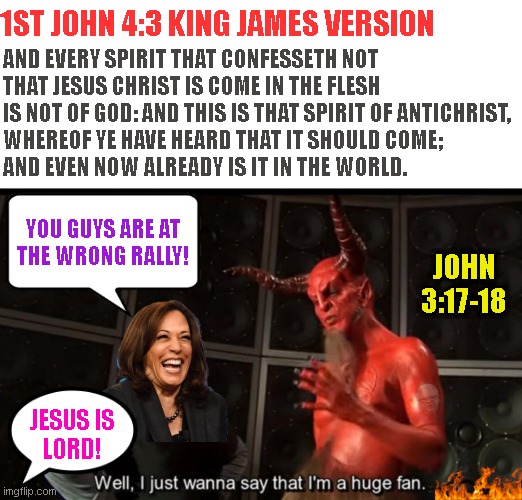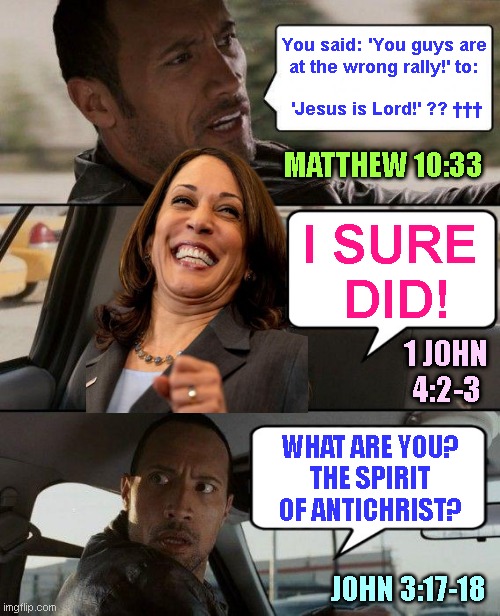Skip to comments.
City officials back down after rejecting nativity display at Christmas farmers' market
The Blaze ^
| November 11, 2025
| Carlos Garcia
Posted on 11/12/2025 7:10:00 AM PST by Twotone
A woman who has organized a local farmers' market for years in the city of Pataskala, Ohio, was prohibited from putting on a live nativity display for a Christmas-themed market until officials backed down.
Susan Conley requested in September to be allowed to set up the nativity scene on public grounds this year after previously having it located on private property. The city denied the request, despite allowing other displays that included the Grinch, Santa Claus, and Buddy the Elf.
The First Liberty Institute, which represents Conley, said in a press release that city officials backtracked after the organization sent a letter to them on her behalf.
"This is nothing new for Susan. She has worked with the city for nearly a decade to set up a live Nativity as a part of Pataskala’s annual Mainstreet Christmas event," reads the statement from the organization.
Conley said she had organized live nativity displays on private grounds in the city for about 16 years.
"It was very frustrating. I couldn't understand really why the city would deny my request," she said to WKEF-TV.
"For many in the community, celebrating the season means coming together to celebrate Jesus," she continued.
Mayor Mike Compton admitted that he and other officials initially had concerns about religious expression on public grounds. "This was brand new, and we just said, 'Hey, you know what? Staying with our normal policy, not mixing religion on city property, your permit is approved, but you cannot do the nativity. You will have to find another location,'" Compton said, according to WBNS-TV.
After Conley and FLI threatened a lawsuit, city officials reconsidered their decision.
"We are grateful that the city administration recognized that the Constitution protects Ms. Conley’s right to put up a nativity at the farmers' market," said First Liberty Institute senior counsel Nate Kellum.
"Pataskala cannot ban religious displays on public property just because they’re religious," he added.
Ohio gubernatorial candidate Vivek Ramaswamy released a statement on his social media siding with Conley.
"The city of Pataskala, Ohio recently denied a petition from local residents to set up a live nativity scene at a holiday-themed farmers market in December. This is blatantly unconstitutional," he wrote.
"Denying permits for religious displays on public property because of their content is a First Amendment violation & has a chilling effect on all religious faiths. In recent years, Christianity has been unfairly targeted by secular political leaders; in the future, it could easily be other faiths too. But it's always wrong, unconstitutional, and un-American," he added.
"I stand ready to help local residents in my home state who stand up for their constitutional rights," Ramaswamy concluded.
Ramaswamy later posted that he had discussed the issue with Mayor Compton and that it had been "resolved."
"Thank you to the leaders of the great city of Pataskala for handling the matter promptly!" he wrote.
TOPICS:
KEYWORDS: antichrist; christ; christmas; gospel; jesus; jesuschrist; john3vvs17to18; nativitydisplay; ohio; spiritofantichrist
1
posted on
11/12/2025 7:10:00 AM PST
by
Twotone
To: Twotone
Just goes to prove you don’t own your property, the state does. They lease it back to you through property taxes.
To: Twotone
There is no Christmas without Christ...or the Mass!
3
posted on
11/12/2025 7:20:56 AM PST
by
Ge0ffrey
To: DownInFlames
It wasn't her property:
Susan Conley requested in September to be allowed to set up the nativity scene on public grounds this year
Conley said she had organized live nativity displays on private grounds in the city for about 16 years
That being said, I agree with you that as long as you must pay property taxes, you never truly own your land.
4
posted on
11/12/2025 7:23:54 AM PST
by
Sicon
("All animals are equal, but some animals are more equal than others." - G. Orwell)
To: Twotone
I couldn’t understand really why the city would deny my request,”
....................................
Because evil hates Jesus Christ. It’s a spiritual battle.
5
posted on
11/12/2025 7:42:19 AM PST
by
ViLaLuz
(2 Chronicles 7:14)
To: Twotone
6
posted on
11/12/2025 9:14:07 AM PST
by
sauropod
To: ViLaLuz
(Because evil hates Jesus Christ. It’s a spiritual battle.)
The spirit of antichrist IS ALWAYS
working AGAINST the Gospel,
Knowledge and Proclamation of
Jesus Christ as Lord and Savior
Which is EXACTLY WHY Godless Reprobate Goat 🐐🐐🐐
Kamala Harris did her part to PUBLICLY DENY HIM (for the thread)
The Enemy's #1 goal is to SUPPRESS the Gospel of Jesus Christ
of Nazareth as Almighty God's Word and His Chosen Messiah
The Enemy is That Old Serpent 🐍 Called the Devil and Satan
His Goats 🐐🐐🐐 do the spirit of antichrist
works of their REAL FATHER (John 8:44) 
 We are NOT the same
We are NOT the same
7
posted on
11/12/2025 9:16:00 AM PST
by
SaveFerris
(Luke 17:28 ... as it was in the Days of Lot; They did Eat, They Drank, They Bought, They Sold ......)
To: ViLaLuz; jacknhoo
Matthew 10:33-35
Amplified Bible
33 But the one who denies and rejects Me before men, that one
I will also deny and reject before My Father Who is in Heaven.
34 “Do not think that I have come to bring Peace on the Earth;
I have not come to bring Peace, but a Sword
[of Division between Belief and UnBelief].
35 For I have come to set a man against his father,
and a daughter against her mother,
and a daughter-in-law against her mother-in-law;
https://www.biblegateway.com/passage/?search=Matthew%2010:33-35&version=AMP
Luke 12:51-53
King James Version
51 Suppose ye that I am come to give Peace on Earth?
I tell you, Nay; but rather Division:
52 For from henceforth there shall be five in one house Divided,
three against two, and two against three.
53 The father shall be Divided against the son,
and the son against the father;
the mother against the daughter,
and the daughter against the mother;
the mother in law against her daughter in law,
and the daughter in law against her mother in law.
https://www.biblegateway.com/passage/?search=Luke%2012%3A51-53&version=KJV
8
posted on
11/12/2025 9:22:09 AM PST
by
SaveFerris
(Luke 17:28 ... as it was in the Days of Lot; They did Eat, They Drank, They Bought, They Sold ......)
To: DownInFlames
Wait till Momo takes office. It will be the end of the Rockefeller Christmas tree.
9
posted on
11/12/2025 9:36:12 AM PST
by
EQAndyBuzz
( Covfefe! )
(Christianity has been unfairly targeted by secular political leaders)
Pontius Pilate and Herod were unavailable for comment
AI Overview: (with a tiny bit of tweaking)
Why Pilate and Herod Became Friends
Yes, Pontius Pilate and Herod became friends “that very day” after having been enemies before. This unexpected political alliance was forged through their shared disdain for Jesus, Whom they both mocked and ultimately dismissed.
From enemies to friends:
The Biblical account in Luke 23:12 states that “Herod and Pilate became friends with one another on that very day; for before they had been enemies with each other”.
Shared political maneuver:
Pilate, the Roman governor, had sent Jesus to Herod Antipas, the tetrarch of Galilee, to be tried because Jesus was a Galilean. This was a political move to deflect responsibility and show deference to Herod’s authority in Judea.
A common enemy:
Their mutual animosity was set aside as they found common ground in mocking Jesus and finding no fault in Him, which allowed them to “bury the hatchet” and unite against a common ‘problem’.
Jesus Christ stood before Pontius Pilate
Pontius Pilate WILL stand before Jesus Christ
Philippians 2:10-11
New King James Version
10 that at the Name of Jesus every knee should bow, of those in Heaven,
and of those on Earth, and of those under the Earth,
11 and that every tongue should confess that Jesus Christ
is Lord, to the glory of God the Father.
https://www.biblegateway.com/passage/?search=Philippians%202%3A10-11&version=NKJV
If you’re reading this today:
Choose Wisely.
Choose Eternal Life.
10
posted on
11/12/2025 9:37:27 AM PST
by
SaveFerris
(Luke 17:28 ... as it was in the Days of Lot; They did Eat, They Drank, They Bought, They Sold ......)
To: EQAndyBuzz
That may be a possibility
Islam denies the Deity of Jesus Christ
and reduces Him to “prophet” 😲🤯😨
Matthew 16:13-17
King James Version
13 When Jesus came into the coasts of Caesarea Philippi,
he asked His Disciples, saying,
Whom do men say that I the Son of man am?
14 And they said, Some say
that Thou art John the Baptist:
some, Elias; and others, Jeremias,
or one of the prophets.
15 He saith unto them, But whom say ye that I am?
16 And Simon Peter answered and said,
Thou art the Christ, the Son of the Living God.
17 And Jesus answered and said unto him,
Blessed art thou, Simon Barjona: for flesh and blood
hath not revealed it unto thee,
but My Father which is in Heaven.
https://www.biblegateway.com/passage/?search=Matthew%2016%3A13-17&version=KJV
11
posted on
11/12/2025 9:45:09 AM PST
by
SaveFerris
(Luke 17:28 ... as it was in the Days of Lot; They did Eat, They Drank, They Bought, They Sold ......)
To: AdmSmith; AnonymousConservative; Arthur Wildfire! March; Berosus; Bockscar; BraveMan; cardinal4; ...
12
posted on
11/12/2025 9:57:26 AM PST
by
SunkenCiv
(NeverTrumpin' -- it's not just for DNC shills anymore -- oh, wait, yeah it is.)
To: Twotone
I wonder if there would have been any objections, had Ms. Conley wanted to put up a Diwali or a Kwanzaa display on public property.
13
posted on
11/13/2025 12:02:50 AM PST
by
Berosus
(I wish I had as much faith in God as liberals have in government.)
Disclaimer:
Opinions posted on Free Republic are those of the individual
posters and do not necessarily represent the opinion of Free Republic or its
management. All materials posted herein are protected by copyright law and the
exemption for fair use of copyrighted works.
FreeRepublic.com is powered by software copyright 2000-2008 John Robinson


